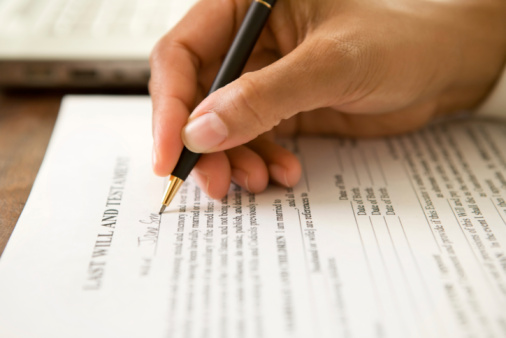Video-witnessed wills to be made legal in England and Wales during coronavirus pandemic
The Ministry of Justice has announced that the video witnessing of wills is to be made legal in England and Wales during the coronavirus (COVID-19) pandemic and will be backdated to 31 January 2020.

Can you witness a will via video link in England and Wales?
The UK government has announced plans to change the law to allow wills to be witnessed virtually in England and Wales.
While isolating or shielding some people have turned to video link software, such as Zoom or FaceTime, to witness a will. Therefore, the government is legalising the remote witnessing of wills – making it easier for people to record their final wishes during the coronavirus pandemic.
These changes will be made via new legislation in September and reforms will be backdated to 31 January 2020. The changes aim to reassure the public that wills witnessed via video link are legally recognised and the changes will remain in place until 31 January 2022 or ‘as long as deemed necessary’.
What are the valid will requirements in England and Wales?
In order for a will to be valid in England and Wales it must be executed in accordance with Section 9 of the Wills Act 1837. This act states that no will is valid unless:
1. it is in writing, and signed by the testator, or by some other person in his/her presence and by his/her direction
2. it appears that the testator intended by his/her signature to give effect to the will
3. the signature is made or acknowledged by the testator in the presence of two or more witnesses present at the time
4. each witness either:
- attests and signs the will
- or acknowledges his/her signature in the presence of the testator (but not normally in the presence of any other witnesses), but no form of attestation shall be necessary
The coronavirus (COVID-19) outbreak has meant that the final requirement, to have the signing of the will witnessed (which protects people against undue influence and fraud), has become challenging. Normally, the witness needs to be physically present alongside the testator and sign the will at the same time as them. However, many have been resorting to video conferences instead.
How can you make a will during the coronavirus (COVID-19) pandemic in England and Wales?
The Ministry of Justice (MOJ) states that: “the use of video technology should remain a last resort, and people must continue to arrange physical witnessing of wills where it is safe to do so.” Instead, the MOJ suggests that the following scenarios would lead to a properly executed will during the pandemic within the existing law, provided that the will maker and the witnesses each have a clear line of sight:
- witnessing through a window or open door of a house or a vehicle
- witnessing from a corridor or adjacent room into a room with the door open
- witnessing outdoors from a short distance, for example in a garden
Wills still need to be signed by two witnesses who are not its beneficiaries and electronic signatures will not be permitted. In the longer term the government “will be considering wider reforms to the law on making wills.”
You can see full guidance on making wills using video-conferencing in England and Wales on GOV.UK.
Can you witness a will via video link in Scotland?
The Law Society of Scotland has also temporarily amended its guidance on witnessing the signing of a will to allow the lawyer to act as the witness via video conference, so long as they are not appointed as ‘executor’ (the person who sorts out the ‘estate’ (money, property and possessions) of the person who's died) directly or through a trust company.
See also
How to make or amend a will during the Coronavirus (COVID-19) lockdown
Making a will in Scotland during the Coronavirus (COVID-19) lockdown
Find out more
Guidance on making wills using video-conferencing (GOV.UK)
Video-witnessed wills to be made legal during coronavirus pandemic (GOV.UK)
Wills Act 1837 (Legislation)
Image: Getty Images
Publication date: 27 July 2020
